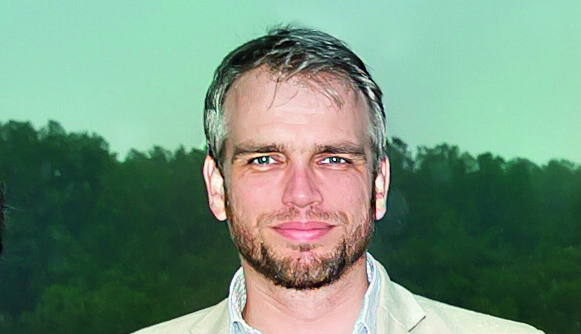Mark Reinders has been CEO of HempFlax since 2016. Raised in a farming family, Mark holds bachelor’s degrees in agri-business and crop production from Het Van Hall Instituut, and earned a Master of Science degree in management from Nyenrode University. He has served on the board of directors of the European Industrial Hemp Association since 2008, prior to being elected President of the Association in June 2016.
HT: How do you define your mission as EIHA President? What are the issues and initiatives that you’re stressing during your presidency?
Mark Reinders: At the moment CBD and THC levels in food and feed are very important and rather urgent. We need to see how we can keep these products available for exploitation for EIHA members. CBD and food are important for their profitability.
HT: How can the EIHA best work at the EU level and what are the key things that need to be addressed to help advance the European hemp markets vis a vis the EU?
MR: We need to work at the EU level but also on the national level. Some regulations are only local and need local lobbying. An EU-wide network is important to keep updated on all current issues, and we therefore need to maintain close contact with our members in order to be functional. Moreover, the work of the EIHA needs involvement of all members beyond our board members only.
HT: More specifically, how can EIHA be most effective in guiding development of common regulation for hemp farmers in EU?
MR: We are continuously publishing new position papers and pushing information to EU officials to try to influence their decision making. It’s important to create awareness among them in order to get a legal framework in which our members can operate optimally.
HT: For any farmer that would like to join the EIHA, what does the Association offer in the way of help for newcomers to the crop?
MR: In the EIHA network there are processors and equipment suppliers which are listed in the database, with free access for members. This helps them to identify ways they can set up their business. The annual EIHA conference is also an extremely important venue for companies that want to get up-to-date information about growing and processing.
HT: There’s general agreement that the hemp industries need investment. Does the EIHA have a role to play in this context? What should that role be, and what are the best ways to execute all that?
MR: The main goal of the EIHA is to create a legal framework in which hemp ventures can operate safely and legally, and which in the end will attract mainstream investors and boost the industry. For example, at the moment with an unclear legal status for CBD, not many regular investors will be willing to invest in this industry now.
HT: How do you see the CBD market working itself out over the next couple of years in light of the current glut and market disruption?
MR: The CBD market is maturing very fast. We see that first-generation CBD products are being replaced by more sophisticated ones. Many new products are entering the market. The customer base is moving from the innovators to the early majority, with a logical coming down of prices to more mature levels as more and more suppliers enter the market. We already begin to observe some price wars now, which isn’t helping the industry at all.
HT: Please talk about the importance of standards and quality for hemp products, and how EIHA is advancing or stressing common standards across the sector.
MR: We see more and more suppliers – especially CBD suppliers – bringing products to the market with questionable quality levels. This is not good and damages the trust in hemp products. As an industry, we need our members to commit to quality standards that generate reliable hemp products, to create more trust in the marketplace.
HT: What do you see as the weak points regarding the expansion of hemp production in Europe? What are the critical factors or things needed to keep the industry moving forward?
MR: With hemp you never produce for one feedstock alone. If you produce for fiber, you get shivs, seeds, CBD, etc. too, and you need to market all the feedstock streams at the same time. A good market balance is of utmost importance to the health of the industry. It is not good for the industry that high revenues in one product stream are generating dumping practices in the other product streams. If the industry grows too fast, it will negatively affect profitability, and some producers just won’t make it in that environment.

